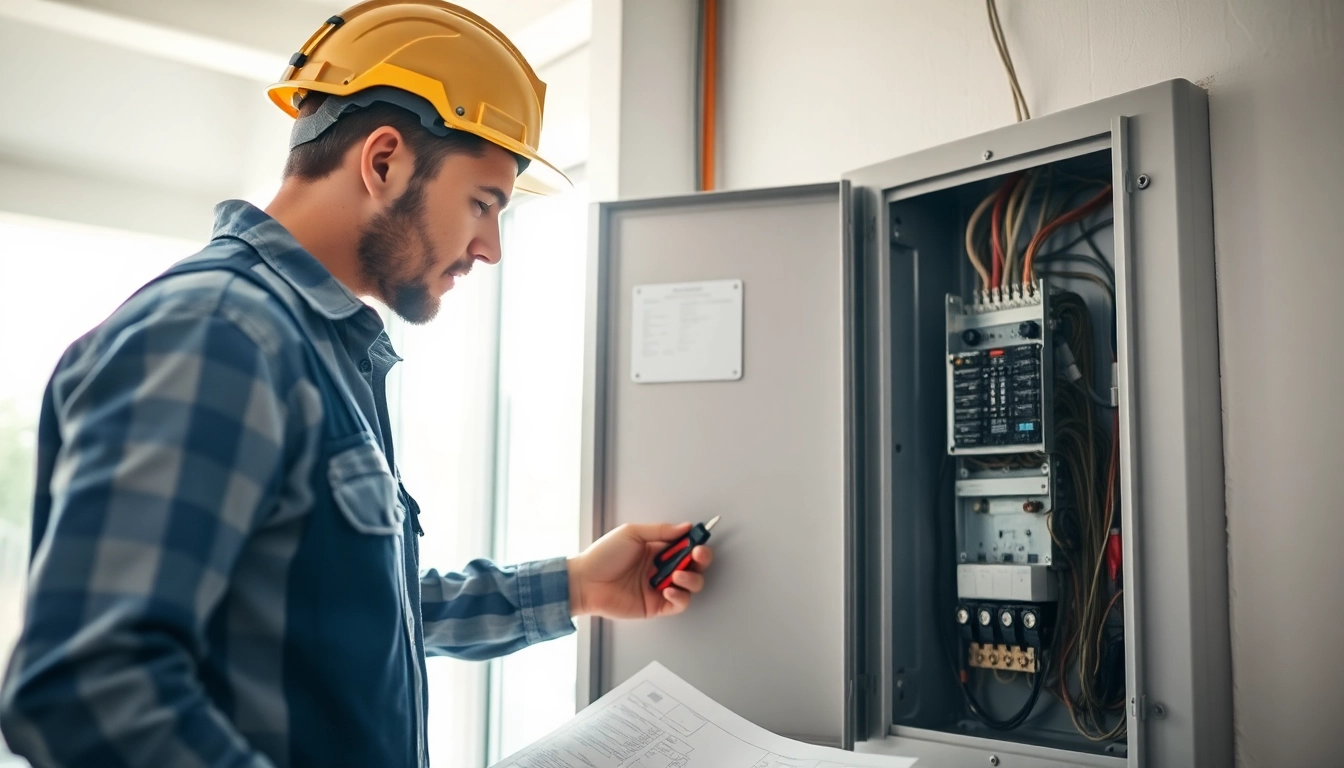What is an Electrical Panel Upgrade?
Defining Electrical Panel Upgrade
An electrical panel upgrade refers to the process of replacing or enhancing your existing electrical panel to meet the growing electrical demands of a modern household. Your electrical panel, also known as a breaker panel or distribution board, functions as the main control center for your home’s electricity. It distributes electrical power throughout your home while providing necessary protection from overloads and short circuits. As appliances become more energy-efficient and our reliance on technology continues to increase, the need for upgrading your electrical panel becomes increasingly vital to ensure efficiency, safety, and convenience.
Key Components of an Electrical Panel
Understanding the composition of your electrical panel can help in identifying when an upgrade might be necessary. Key components include:
- Main Breaker: This is the primary switch that controls the flow of electricity into your home.
- Branch Circuit Breakers: These breakers protect individual circuits in your home from overloads.
- Bus Bars: Conductive bars that distribute electrical power to different circuits.
- Grounding Bar: A safety feature that directs excess electricity to the ground, ensuring safety during faults.
When to Consider an Electrical Panel Upgrade
Deciding when to conduct an Electrical Panel Upgrade is crucial. Signs of inadequate functionality, such as frequent tripping of circuit breakers or hot outlets, indicate that your panel may not be able to handle your home’s electrical load. Additionally, a significant lifestyle change, such as adding major appliances, expanding living space, or incorporating renewable energy solutions like solar panels, necessitates an assessment of your electrical panel’s capabilities.
Signs You Need an Electrical Panel Upgrade
Assessing Electrical Demand in Your Home
Your home’s electrical demand can fluctuate based on the appliances and technology you use. A standard residential electrical panel today typically supports 200 amps. If you are planning to upgrade your home’s technology, such as installing an electric vehicle (EV) charger or high-capacity appliances, your current panel might struggle to meet the demand. Electrical Panel Upgrade should be considered to ensure reliable service.
Identifying Safety Hazards
Safety should be paramount in any household. An older panel may pose safety risks; for instance, outdated breakers may not trip effectively, allowing dangerous surges to occur. Additionally, signs of corrosion, burn marks, or any unusual odors near your electrical panel warrant immediate attention and likely indicate a need for an upgrade.
Understanding the Impact of Aging Panels
As panels age, their components can degrade, leading to decreased performance and increased risk of electrical fires. Upgrading an aging panel will not only enhance capacity but also improve safety standards in your home.
Benefits of an Electrical Panel Upgrade
Increased Electrical Capacity
One of the main advantages of upgrading your electrical panel is increased capacity. A modern panel, typically rated at 200 amps, allows for greater electrical consumption. With the shift towards smart homes and the integration of multiple devices, a higher amperage panel accommodates household needs without overloading the system.
Enhanced Safety Features
Newer electrical panels come equipped with improved safety mechanisms. These can include better circuit breakers that provide more reliable interruptions in the event of faults, reducing the risk of electrical shock or fire. Outdated panels often lack these essential safety features, making upgrades not just advantageous but necessary for home safety.
Cost Efficiency and Energy Savings
Investing in an Electrical Panel Upgrade can lead to cost savings in the long run. New panels are typically more energy-efficient, which can lead to lower electricity bills. Over time, the savings can outweigh the initial costs associated with the upgrade. Additionally, a modern panel can improve the efficiency of your home’s electrical system, extending the life of your appliances and reducing maintenance costs.
The Process of Upgrading Your Electrical Panel
Initial Assessment and Planning
The first step in upgrading your electrical panel involves assessing your current electrical system and identifying specific needs. It is best to work with a qualified electrician who can evaluate your home’s electrical infrastructure, taking into account power requirements, safety features, and local electrical codes.
Choosing the Right Electrical Panel
Different types of panels are available, so choosing the right one is crucial. Factors such as the size of your home, the number of circuits required, and your future electrical needs will guide this choice. Common options include standard panels, smart panels, and those specifically designed for solar integration.
Hiring a Qualified Electrician
It’s essential to hire a licensed and experienced electrician to perform the upgrade. Not only are they knowledgeable about local regulations and codes, but they can also ensure that the installation is safe and effective. They will safely disconnect your existing panel during the upgrade, install the new system, and reconnect all affected circuits.
Cost and Funding Options for Electrical Panel Upgrade
Average Costs of Electrical Panel Upgrade
The cost of an Electrical Panel Upgrade can vary widely based on the scope of work, materials, and labor involved. On average, homeowners can expect to pay between $800 and $4,000 for a standard upgrade. Various factors can influence this price, such as the complexity of the installation, the need for additional wiring, or any necessary permits.
Government Rebates and Incentives
Several incentives may be available to offset the costs of upgrading your electrical panel. Local governments often offer rebates for energy-efficient upgrades or for homeowners who incorporate renewable energy sources. It’s beneficial to research and take advantage of these programs, which can significantly reduce overall expenses.
Financing Your Upgrade Project
For those concerned about budget constraints, many financing options are available specifically for home upgrades. These options might include home equity loans, personal loans, or even specialized loans for energy improvements. Consulting with a financial advisor can provide insights into the best options tailored to your financial situation.



